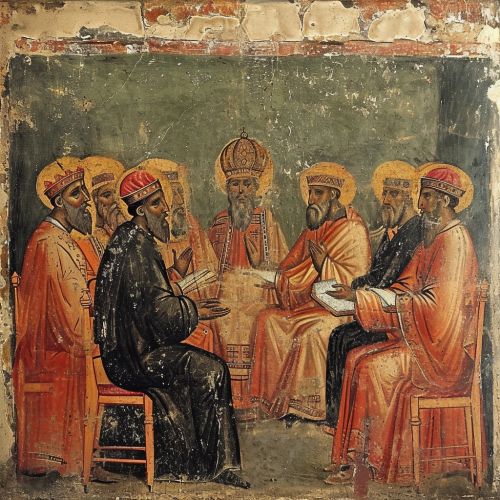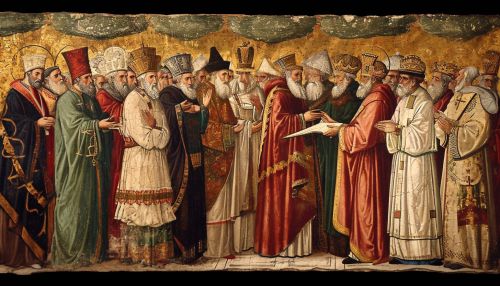Council of Ephesus
Historical Background
The Council of Ephesus was the third ecumenical council of the Christian Church, convened in 431 AD in the city of Ephesus, which is in present-day Turkey. The council was called by Emperor Theodosius II, ruler of the Eastern Roman Empire, and his western counterpart, Valentinian III. The council was attended by approximately 200 bishops, although the exact number is not known.
Theological Disputes
The main theological dispute dealt with at the council was the nature of Jesus Christ and his relationship to God the Father. Specifically, the council addressed the teachings of Nestorius, the Archbishop of Constantinople, who argued that Jesus had two separate natures, one divine and one human, and that Mary, the mother of Jesus, should be called Christotokos (Christ-bearer) rather than Theotokos (God-bearer). This was seen as a challenge to the orthodox view that Jesus was both fully human and fully divine, and that these two natures were united in one person.


Proceedings of the Council
The council was presided over by Cyril of Alexandria, who was a staunch opponent of Nestorius. The council was marked by intense debates and political maneuvering, with Cyril and his supporters seeking to condemn Nestorius and his teachings. The council eventually voted to excommunicate Nestorius and affirm the title of Theotokos for Mary. This decision was not accepted by all, however, and led to a schism within the church, with the churches of the East, particularly the Church of the East in Persia, rejecting the council's decisions.
Impact and Legacy
The Council of Ephesus had a significant impact on the development of Christian doctrine and the structure of the Church. It affirmed the orthodox view of the nature of Christ and the title of Theotokos for Mary, which remain central tenets of Christian belief to this day. The council also led to a permanent schism between the Eastern and Western churches, which continues to have repercussions in the Christian world.
